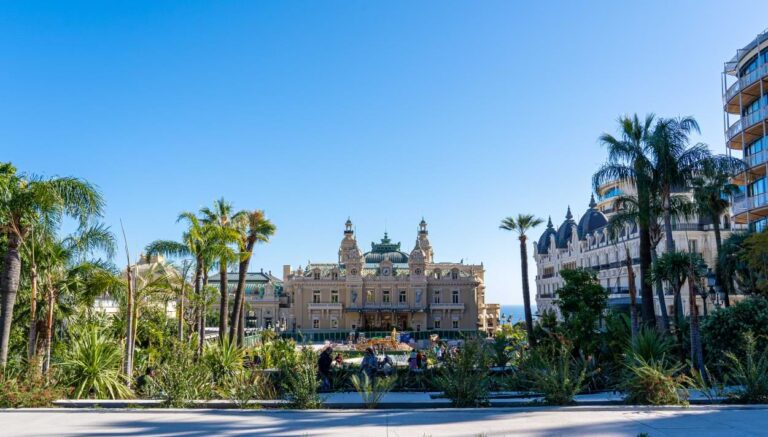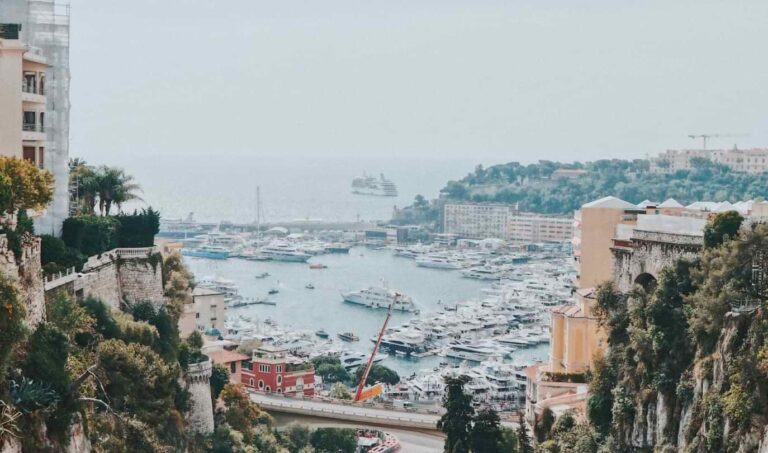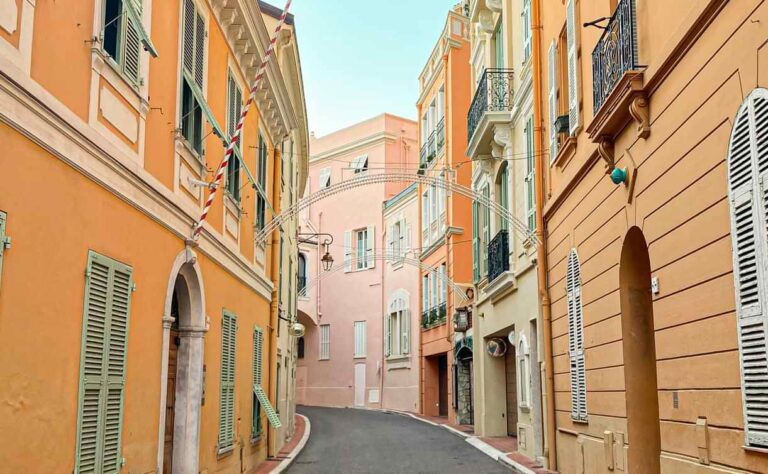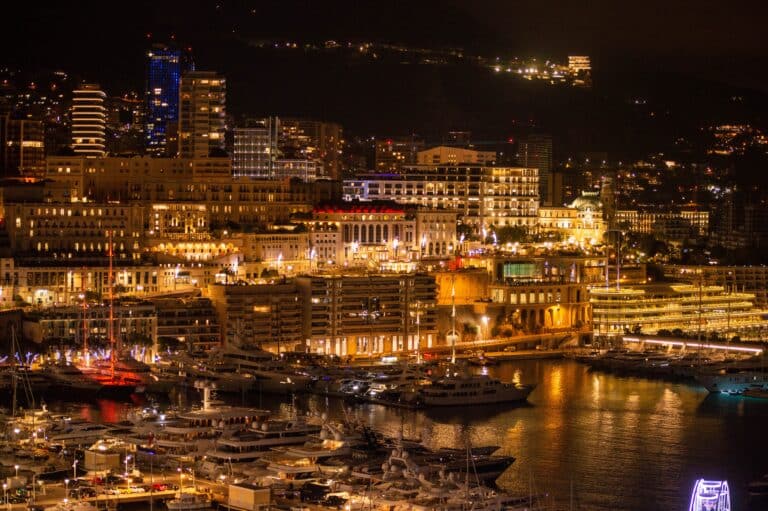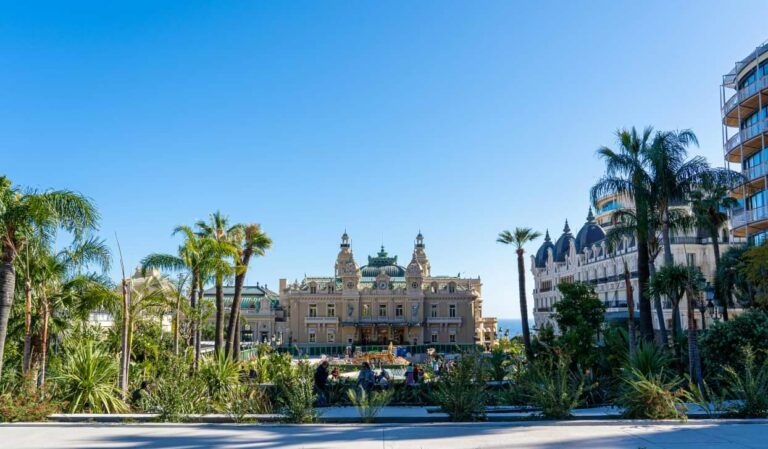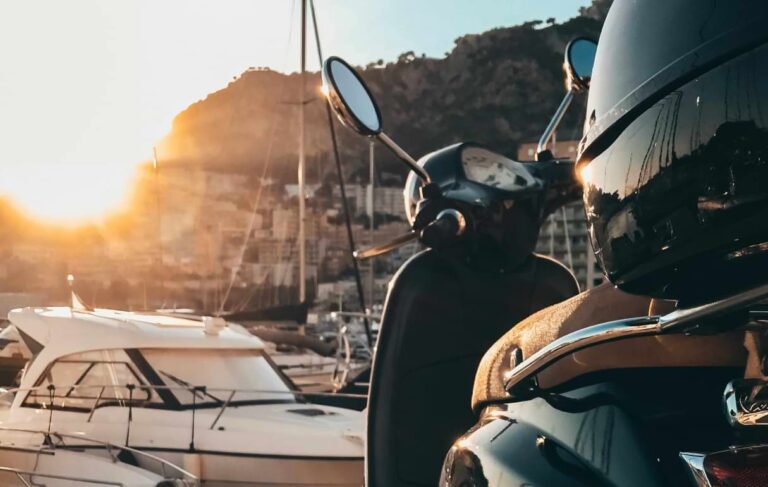Monaco is a small but wealthy country on the French Riviera, known for its glamorous lifestyle, tax benefits, and high quality of life. Many people dream of living in this exclusive and prestigious location, but there are many misconceptions about getting Monegasque residency.
Is there a Residency by Investment program? Can I become a Monaco resident by simply investing a minimum amount of money in real estate?
In this guide, we will clarify everything you need to know about how to obtain the coveted Monaco residence permit.
NEW REPORT
The report “The definitive guide to living in Monaco” is now available, with detailed information on Monaco’s tax framework, residence and society.
Click here to download it for free.
Is There an Actual Residency by Investment Program?
Some countries grant residence or citizenship in exchange for a minimum investment in local assets.
Monaco, however, does not have a formal “Residency by Investment” program as such: since there isn’t a Monaco Golden Visa program per se, you cannot simply invest in real estate or a local business and automatically qualify for a residence permit. Instead, Monaco’s rules require that every residency applicant prove they have sufficient financial means to live in the principality.
The most common and straightforward path for wealthy individuals is to open a bank account in Monaco and deposit a substantial sum (generally starting around €500,000). This deposit shows the local authorities that you have enough resources to sustain your lifestyle in Monaco.
If you can demonstrate this financial sufficiency, you stand a strong chance of being granted a Monaco residence permit. But keep in mind that, officially, there is no automatic or direct “pay-to-get-residency” scheme. Rather, you prove your financial means, and a significant deposit in a local bank happens to be the most typical way for affluent individuals to do so.
Other Ways to Obtain Monaco Residency and Prove Financial Sufficiency
Apart from the common practice of opening a Monaco bank account and depositing funds (usually around €500,000), there are several alternative ways to demonstrate your financial capacity or legitimate ties to Monaco. Below are the main avenues that allow you to meet the financial sufficiency requirement.
- Family reunification: You may become eligible for residency if you are joining a spouse or close relative who already resides in Monaco.
- Employment or self-employment: You can be hired by a Monaco-based employer, or carry out a recognized activity in Monaco, demonstrating you have sufficient income to live comfortably in the principality.
- Purchasing a local company or being appointed as a director: In some cases, especially if you plan to be active in the business, this can help secure a residence permit by proving steady income or salary. However, this path is less common for wealthy individuals who prefer not to manage day-to-day operations.
- Retirement with adequate pension and savings: If you have stable retirement income and sufficient assets to support yourself, you can rely on these to fulfill the financial requirement.
- Being supported by someone in Monaco: A spouse, parent, relative, or partner who already resides in Monaco can pledge to cover your living expenses, thereby demonstrating your financial stability.
While direct investments in real estate or local business ventures do not automatically grant residency, they can indirectly help. For instance, if you own property or have a Monaco-based company, it may strengthen your case by illustrating substantial economic ties to the principality.
In the end, most high-net-worth individuals still opt for the bank deposit route, as it remains the simplest and most direct method to satisfy the principality’s financial sufficiency rules without engaging in active business operations.
Can I Get The Residency by Investing in Real Estate?
Investing in a real estate property in Monaco here does not, by itself, guarantee that you meet the financial sufficiency requirement for a residence permit. However, since Monaco’s property market is among the most expensive in the world, if you can afford to purchase a decent property here, you are likely also able to meet a local bank’s criteria for maintaining a large deposit or investment.
In other words, while buying real estate in Monaco certainly enhances your credibility in the eyes of the local authorities and banks, the official rule remains: you must prove ongoing financial sufficiency, and property ownership alone does not replace this requirement.
Monaco Real Estate Market
If you are considering investing in or operating real estate in Monaco, you should know that prices start from around €1,000,000 and can go well beyond that. Monaco remains the most expensive real estate market in the world, with average price per square meter in the best neighborhoods ranging from €50,000 to €100,000.
Besides high per-square-meter prices, buying a property in Monaco involves additional costs:
- Registration and notary fees: Generally around 4.5% of the purchase price.
- Real estate agent’s fee: Typically about 3% of the purchase price.
- Deposit when reserving a property: Often 10% of the purchase price, paid upfront.
- Lawyer fees for paperwork and due diligence: Can range from 2% to 4% of the purchase price.
Be aware that some of these costs (such as agents’ and lawyers’ fees) may be subject to VAT, which is 20% in real estate transactions.
Meanwhile, the Monaco rental market has also been soaring. Rental prices vary by district, but monthly rents can go from €4,200 to €30,000 in the Monte-Carlo/Carré d’Or area, €2,000 to €25,000 in Larvotto/La Rousse, and €2,300 to €26,000 in Fontvieille. If you rent out property, you may generate the recurrent income needed to prove your financial means. However, be sure you fully understand and comply with the local regulations on residency and property rentals.
Who Is Covered by The Residence Permit?
If you successfully obtain the Monaco residence permit, the following family members are covered:
- The main applicant.
- Children who are financially dependent on the applicant.
- The spouse of the applicant.
Minors under 16 do not get a residence permit but may apply for a special document de circulation pour mineur étranger. Note that ascendants of the main applicant (i.e., parents, grandparents) are generally not covered by the applicant’s residence permit.
Benefits of Becoming a Resident
Monaco offers an exceptionally high standard of education, healthcare, and culture. It is internationally known for its safety, political stability, and unique lifestyle. Additionally, Monaco has a robust, stable financial system thanks to its prudent budgetary discipline.
By obtaining Monaco residency, you also enjoy:
- Freedom of movement within the Schengen area: Residents of Monaco can travel visa-free across Schengen countries.
- Attractive social and tax system: Monaco does not levy direct income or capital gains taxes on individuals.
- Secure environment: The principality is globally recognized for low crime rates and high security.
- Strategic location: You are well connected by plane or car, with Nice airport just a short drive away.
- Opportunity to work or run a business locally: A residence permit in Monaco allows you to work in the principality if you wish to do so.
Steps and Required Documents
The process to obtain Monaco residency depends on your nationality:
- EU/EEA/Swiss nationals: You can directly apply for a residence permit. You do not need a long-term visa (type-D).
- Non-EU/EEA/Swiss nationals: You must apply first for a long-term visa (type-D) from the French authorities, and only then proceed with the Monaco residence application.
Generally, the required documents include:
- Application form and photo: This is standard for all applicants.
- Proof of accommodation in Monaco: This can be a deed showing you own a house or apartment, or documentation showing that a Monaco company you direct or own holds the property.
- Proof of sufficient financial means: As discussed above, most applicants choose to place a significant deposit in a local bank. Alternatively, an employment contract, a directorship, or evidence of pension income can also serve as proof.
- General documents: This usually includes a valid passport, birth certificate, insurance coverage, health check, and possibly a police clearance from your country of origin.
Although it may seem relatively simple, it is highly recommended that you seek the advice of a local lawyer to ensure the success of these procedures. If you are thinking of taking the step of applying for Monegasque residency, do not hesitate to contact us.
Duration of the Residence Permit
Monaco grants three types of residence permits:
- Temporary residence card (“Carte de séjour de 1 an”): Valid for one year, renewable twice (for a total of up to three years).
- Ordinary residence card (“Carte de séjour ordinaire de 3 ans”): Valid for three years, renewable twice (for a total of up to nine years).
- Privileged card (“Carte de séjour privilégiée de 10 ans”): Valid for ten years and can be renewed without limit.
You must progress through the temporary and ordinary residence cards before qualifying for the privileged card, based on continued compliance with local requirements and showing that you indeed live in Monaco.
Would a Resident in Monaco Pay Taxes?
Once you become a resident, you are subject to the Monaco tax system. However, Monaco famously does not impose personal income tax, capital gains tax, or wealth tax on individuals.
As a resident, you may still have tax obligations if you carry out a business activity, or also in other jurisdictions depending on your specific situation, but in Monaco itself, you generally do not pay personal direct taxes.
How Monaco RG Can Help
Monaco RG has advised and assisted many individuals and families in relocating to Monaco. We help with the residency application process—especially for those using an investment or bank deposit to demonstrate their financial standing. We have local contacts in Monaco who can guide you on banking requirements, property matters, and all the formalities of applying for a residence permit.
If you have any questions and would like tailored advice on how to move to Monaco, please feel free to email us at info@monacorg.com or contact us through our contact form. We will be happy to help you navigate the requirements and make your transition to Monaco as smooth as possible.
Sources:
- https://monservicepublic.gouv.mc/en/themes/nationality-and-residency/residency/new-entrants/how-to-apply-for-a-residence-permit
- https://monservicepublic.gouv.mc/en/themes/nationality-and-residency/residency/residents/the-residence-permit
- https://monservicepublic.gouv.mc/en/themes/nationality-and-residency/residency/residents/residence-permit-and-travel
- https://monservicepublic.gouv.mc/en/themes/nationality-and-residency/residency/residents/how-to-renew-your-residence-permit
- https://monservicepublic.gouv.mc/en/themes/nationality-and-residency/residency/residents/how-to-apply-for-a-duplicate-of-residence-permit


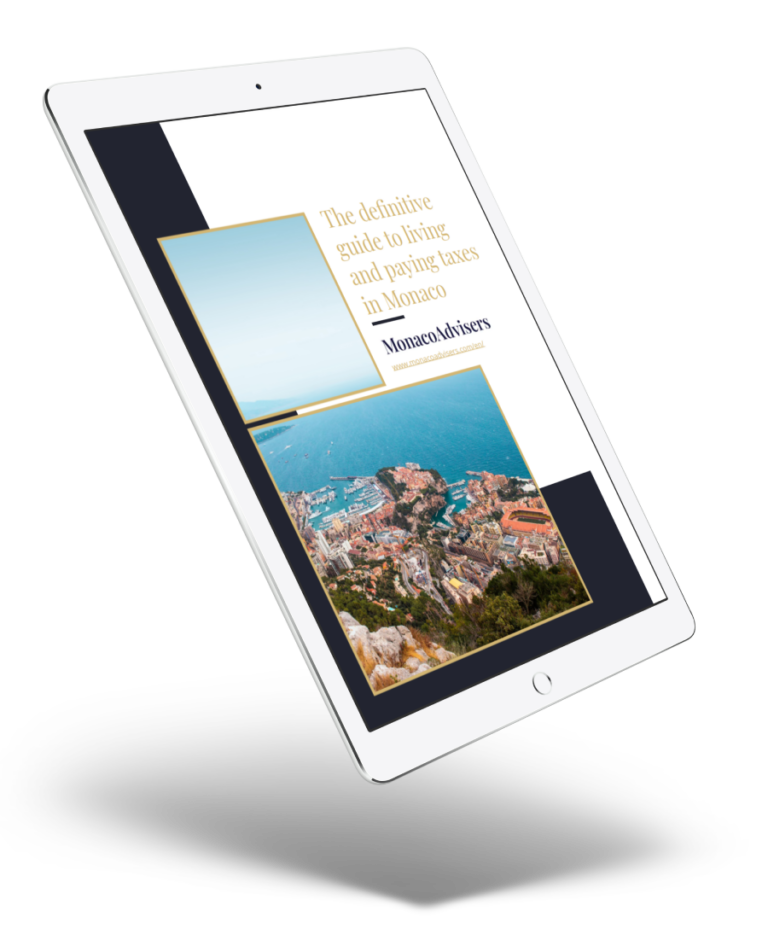
 All communications are encrypted and will be treated with absolute confidentiality. Your data will never be shared with third parties.
All communications are encrypted and will be treated with absolute confidentiality. Your data will never be shared with third parties. 